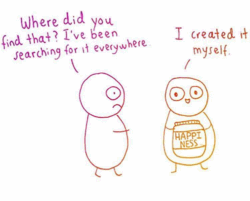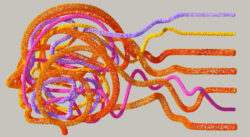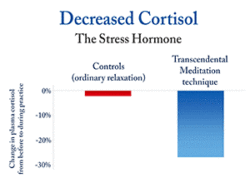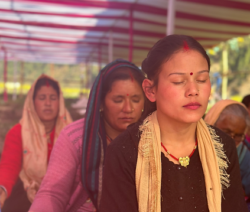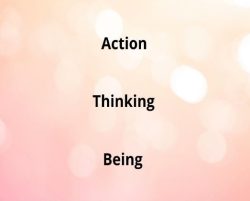February 2025
Dear Friend,
Annually, February is acknowledged as American Heart Month, inspiring organizations that are capable of averting heart attack and stroke to raise awareness about heart disease, its risk factors and means of prevention. TM for Women is dedicated whole heartedly to the well-being of girls and women, and so, in this light, we dedicate this issue to all-things-heart.
- Last month’s blog written by women for women
- Articles
- The meeting of two hearts
- Motherly love
- Meta-analysis on TM and PTSD published in the journal Medicina
- Unrestricted love: getting to the heart of the matter
- Q&A: What’s the relationship of TM, depression and heart health?
- What women say: Everyone wants to be closer to you

Have you had a few minutes to read the articles posted on our blog in January? If you haven’t, the links are below. You can also visit our blog homepage at any time to use our search feature for topics as diverse as Averting Escalation: A New Paradigm for Law Enforcement from 2020 and Stress, ADHD and Childism from 2014.
A Beginner’s Candid Interview About TM

As a long-time Transcendental Meditation teacher, it is clarifying to get a fresh perspective on the TM program. I spoke with a woman who was very recently instructed in the TM technique in order to get a vision of one young woman’s expectations, hopes, and experiences when she starts exploring the development of consciousness.
Teaching Children About Love and Acceptance: An Interview with Children’s Book Author Arlene Maguire

Children’s book author Arlene Maguire is a cum laude graduate of Rutgers University in New Jersey. After receiving a teaching degree, she taught elementary school and then began writing picture books for children. To date, she has sold well over 100,000 books!

Practical Advice for a Meeting of Hearts
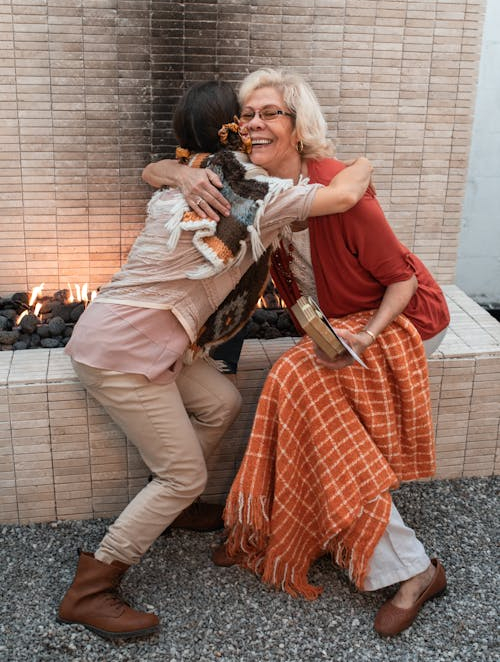
Excerpted from Science of Being and Art of Living by Maharishi Mahesh Yogi; [page 169]
“The purpose of social behavior is to give and take help for mutual benefit. One should meet the other either to give or take. No, mainly to give, and when the two meet to give the best of themselves to each other, then both gain the maximum. On the contrary, if both meet and expect the maximum from each other, each in his attempt to gain from the other has closed his door to giving, and thus no one gains from the relationship except disappointment, resulting in tension on both sides.
“The basic fundamental of behavior should be to give. When you’re going to meet someone, think what you are going to give him, whether it be a concrete gift of a beautiful object, words of greeting, warm sympathy, praise, adoration, love, elevating advice, or good news for his body, mind, or soul. There must be something for you to give when you meet someone. Just a ‘hello’ and ‘how do you do’ cannot produce a wave of love and joyfulness at the meeting. The art of behavior is such that the first moment of the meeting should have a real value of the meeting of the two hearts.”
Motherly Love

Excerpted from Science of Being and Art of Living by Maharishi Mahesh Yogi; [page 170]
“It is the love of a mother for her child that makes her look kindly upon his mistakes. In fact, a mother enjoys the mistakes of the child because, when he commits a mistake, she is able to give him more of her love. In that love, the child grows to be better able to overcome the weakness of committing mistakes. This is how, by the tolerance and love of the mother, the child improves and the art of behavior is naturally infused in him.
“Joyfulness is a quality that cultivates and spreads love. And again, that is the result of the overflowing love of the heart. Joyfulness, love, kindness, and tolerance should be cultivated. With all these qualities comes to contentment and overflowing love of the heart and mind which is the basis of good social relationships.…
“Thus, the basis of the art of behavior is that technique of bringing the mind to the bliss consciousness of transcendental being.”
Published Analysis of 61 Studies Shows TM Most Effective in Treating PTSD
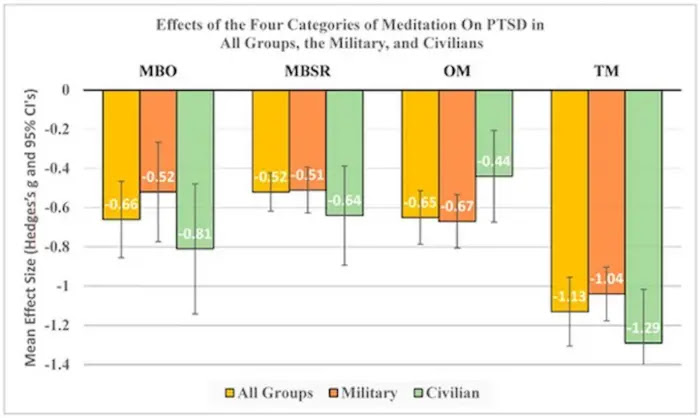
The World Health Organization estimates that over 300 million people will suffer from post-traumatic stress disorder (PTSD) in their lifetime. PTSD can develop when a person has experienced or witnessed a shocking, terrifying, violent, or dangerous event and can create debilitating symptoms physically, mentally, emotionally and socially.
PTSD is a risk factor for cardiovascular disease, including acute cardiac events, such as myocardial infarction and unstable angina. It’s known that PTSD is associated with biological changes that increase risk of heart attack, stroke, and other circulatory system diseases.
Approximately one out of every ten women suffers from PTSD.
A meta-analysis of 61 studies, the largest review to date, was published in December in the peer-reviewed journal Medicina. The study involved more than 3,400 participants and compared four categories of meditation. The analysis showed that the Transcendental Meditation technique is most effective at treating Post Traumatic Stress Disorder.
The Transcendental Meditation technique is highly effective in relieving symptoms of PTSD from all types of trauma populations the researchers studied, including war veterans, war refugees, prison inmates, tsunami and earthquake survivors, as well as survivors of the COVID 19 pandemic, interpersonal violence, and racial violence.
The meta-analysis was an effort of a group representing Maharishi International University, Georgia Prevention Institute, Medical Corps, U.S. Army Reserve, TM for Women, and the Institute for Prevention Research at MIU.
Several categories of meditation programs were compared: In the first category, were Transcendental Meditation (TM) and Mindfulness-Based Stress Reduction MBSR. The first of the other two categories was Mindfulness-Based Other MBO, which are mindfulness-based techniques but not MBSR. MBO techniques were often derived from MBSR but did not follow the MBSR protocol. MBO techniques often experimented with different lengths of training, mode of presentation (such as via telecommunications), or with additional techniques, such as Hatha Yoga. The fourth category of meditation was Other Meditations (OMs), which were neither TM nor MBSR nor MBO. Examples of OMs include compassion meditation, Kriya yoga, Adapted Mantra Meditation, and Mantram Repetition meditation.
The study concluded:
“This systematic review and meta-analysis of all meditation techniques used for treating PTSD found that all groups of techniques show benefit. The Transcendental Meditation technique has clinically meaningful effects on reducing PTSD symptoms that are statistically larger than for other meditation techniques. For this reason, and because TM is offered on a voluntary basis, as is the case with any evidence-based modality, it should be made widely available to military and civilian populations who desire to learn it. This research suggests that the wide implementation of this very effective treatment for PTSD would have significant cost savings and clinical implications, including reduced symptom severity, improved quality of life, increased functional ability, decreased reliance on medication, better social relationships, and potentially a greater capacity for resilience in individuals experiencing post-traumatic stress disorder, essentially allowing people with PTSD to manage their symptoms and participate more fully in daily life.”
Click this link if you wish to read this paper titled Effectiveness of Meditation Techniques in Treating PTSD: A Systematic Review and Meta-Analysis. Medicina 2024, 60 (12), 1-29.
Unrestricted Love: Getting to the Heart of the Matter

Life seems to present us with constant opportunities to care for and support others. At work, our associate is criticized for a poor presentation—opportunity! At the supermarket, the cashier is rushed by a long line of impatient shoppers—opportunity! Our friend calls to cry on our shoulder when her boyfriend uses cutting words in an argument—opportunity!
There was a 1970 hit song by Stephen Stills called, “Love the One You’re With.” There is always an opportunity to flow with “motherly” love to whomever you’re with, because everyone, at any age, can benefit from nurturing. And when you have the ability enlivened within you to flow with motherly love, it is an effortless—and deeply rewarding—experience. It is one of those precious relationships with the world in which you find that you are uplifted in the act of uplifting.
And when you’re on your own? Just offer up some of that motherly love to yourself. Treat yourself gently, get plenty of rest, meditate, eat delicious nourishing food, enjoy the beauty of nature, get a massage—whatever strengthens life, brings your spirits up, and gives you peace and happiness.
– excerpted from “Motherly Love: From Mothers and Others”

Q: How Does the TM Technique Promote Heart Health by Reducing Depression?

Heart disease arises over many years of unhealthy choices, behaviors and emotions. The American Heart Association strongly advises the reduction of these risk factors for cardiac events and mortality.
We certainly can alter our behavior choices when it comes to lack of exercise, smoking, and high consumption of salt and unhealthy fats. There are ways to reduce conditions such as stress, high blood pressure, bad cholesterol levels, obesity, and uncontrolled diabetes. Learning the TM technique addresses many of these risk factors in an automatic easy way—it even reverses atherosclerosis.
But what can one do about depression? Women are diagnosed with depression about twice as often as men. For women it ranks among the top ten cardiovascular disease risks.
Relationship between heart disease and depression
Depression increases heart disease and heart disease has also been shown to cause higher rates of depression. When someone is depressed, she is more likely to skip exercising, smoke more, consume extra alcoholic beverages, and eat unhealthy “comfort” foods.
According to the American Heart Association, “When you experience depression, anxiety or stress, many changes happen in your body that can increase your risk for heart disease.”
According to the Johns Hopkins Medicine website, “People with depression may have uncommonly sticky platelets, the tiny cells that cause blood to clot. In patients with heart disease, this can accelerate atherosclerosis (hardening of the arteries) and increase the chance of heart attack. Some studies show that treating depression make platelets less sticky again.”
Depression has been proven to be such a significant risk factor in cardiac disease that the American Heart Association has recommended that all cardiac patients be screened for depression.
Relationship between Transcendental Meditation and depression
During the TM technique, the body experiences very deep relaxation, causing deep-rooted fatigue, tension and anxiety to melt away. The brain starts to function more efficiently, supporting a heightened, more expansive state of awareness—a subjective state of well-being that is the opposite of depression. With regular TM practice, even after a short time, women report that their lives seems brighter and more joyful.
A study led by researchers at University of California Los Angeles and presented at the 31st Annual Meeting of the Society of Behavioral Medicine showed that depressive symptoms decreased by almost 50% over a 12-month period among people practicing the Transcendental Meditation technique, compared to controls.
Another study had participants assessed for depression randomly assigned to the TM program or health education. After a period of 9 to 12 months, the TM practitioners showed significant improvement compared to the controls. Those with the most serious depression showed an average reduction of 48% in symptoms.
In addition, depression is associated with low levels of serotonin, and studies show that TM practice increases serotonin in subjects whose serotonin is too low.
A study published in the Journal of Counseling and Development in 1985 (illustrated below) showed that patients suffering from post-traumatic stress who learned the TM technique had a significant reduction in depression after four months, in contrast to others who were randomly assigned to receive psychotherapy.



“Once you experience inner peace in your life, you start to radiate joy and everyone wants to be closer to you. You naturally attract more love into your life and your relationships become even more loving. Either you are helping someone or they are helping you. With meditation, somehow there is more joy inside you and more joy for everyone around you….
“I went from being very insecure to being much stronger and more confident inside, and I started experiencing unconditional love toward everyone and everything, all creatures on earth. It’s my perception more and more that we all come from the same divine source. Wishing love for my daughter and husband becomes unconditional love for all….
“TM gives you that time you need to recharge, open up your eyes and express your love again.”
— Flavia Finnegan, wife, mother and career woman
Editor’s note: We’d love to hear your comments on the benefits you’ve received from the TM practice. And, with your permission, we’ll publish them here for other women to enjoy. Send your comment to info@tm-women.org







